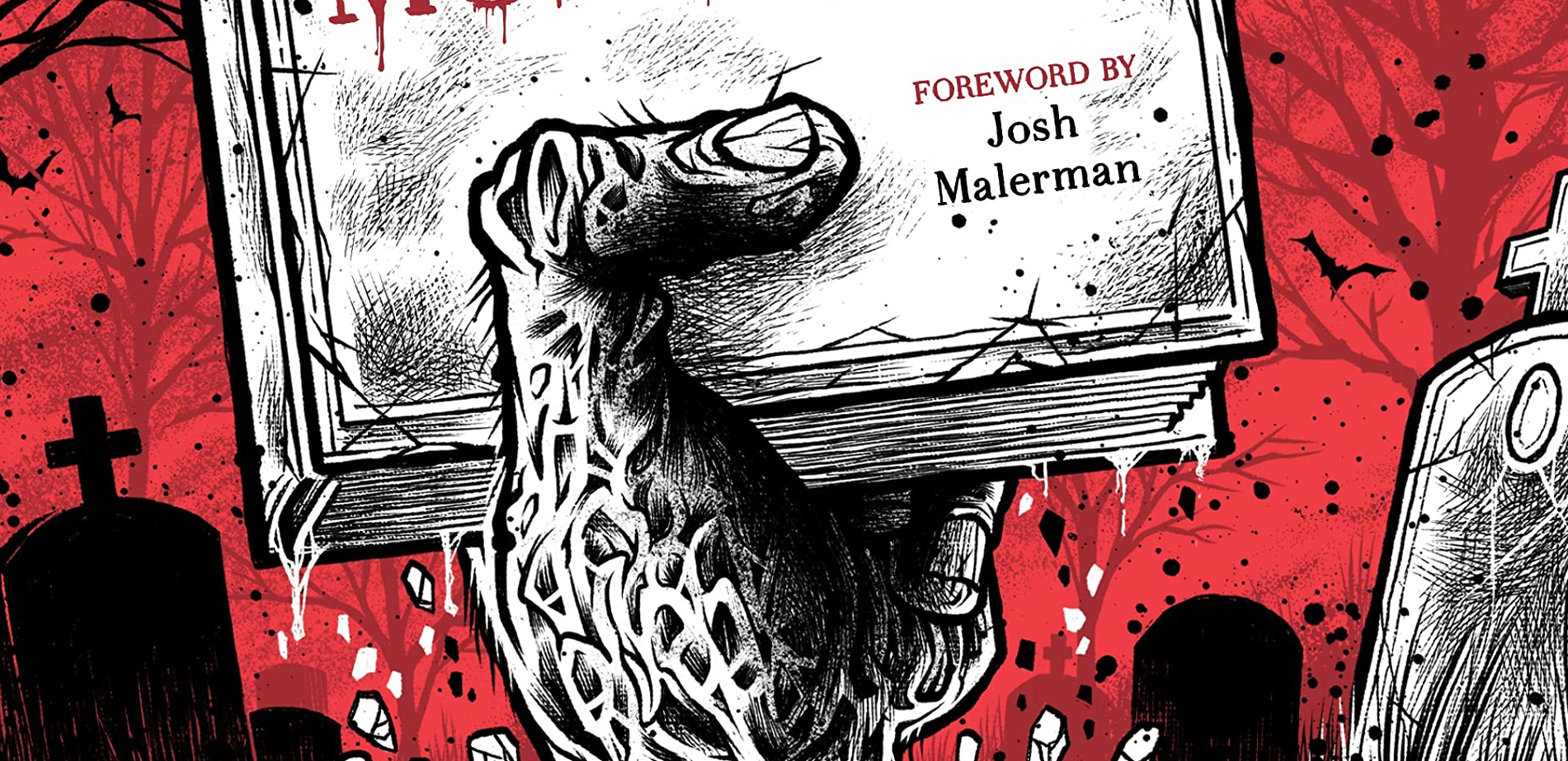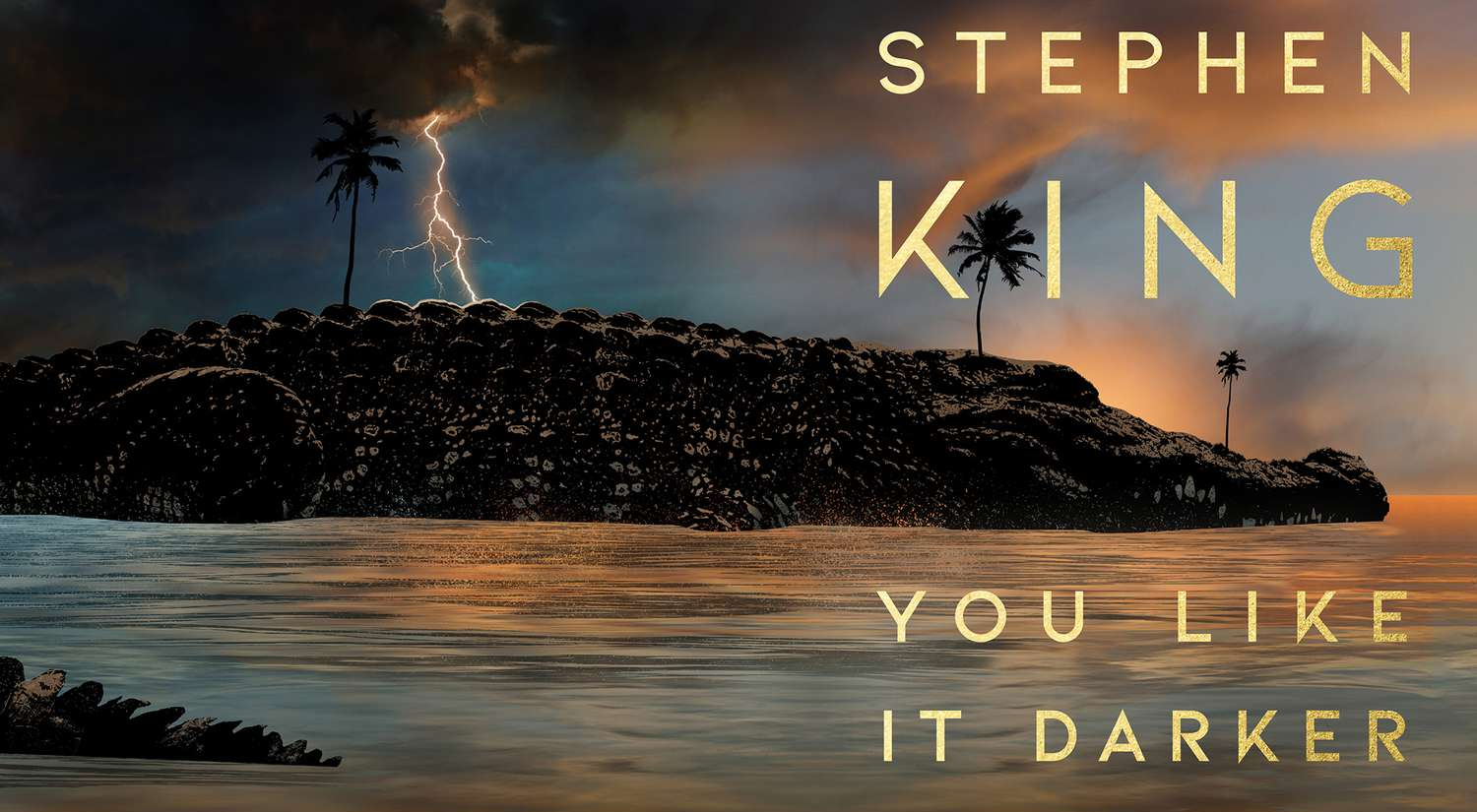Books
‘101 Horror Books to Read Before You’re Murdered’ Spotlights the Best Books of the Past 23 Years [Review]

My to-be-read pile is shamefully big, but that never stops me from adding more. I cherish getting lost in a good book, but a novel is more of a commitment than chipping away at movies on my to-watch list. The conspicuously titled 101 Horror Books to Read Before You’re Murdered may make that stack of books to read even more intimidating, but it also helps narrow down which tales of terror are worthy of being moved to the top.
Following a foreword by Bird Box author Josh Malerman, writer Sadie “Mother Horror” Hartmann explains why you should trust her choices implicitly. As the owner of the horror fiction subscription service Night Worms and the editor-in-chief of publisher Dark Hart Books, she’s an unassailable authority on horror literature — even if she’s a self-proclaimed scaredy cat who rarely watches genre movies.
With no shortage of “all-time best” lists available elsewhere, Hartmann focuses exclusively on horror books published between 2000 and 2023. Constant readers will be familiar with many of the names that pop up — Joe Hill, Junji Ito, Jack Ketchum, Jeff VanderMeer, Chuck Wendig, Joe R. Lansdale, to name a few — but Hartmann also celebrates countless lesser-known authors, including indie and self-published works.
The 168-page guide is divided by theme into five chapters, which are then further broken down into subcategories: paranormal (haunted houses; ghosts; creatures & cryptids), supernatural (demons & possession; the occult & witchcraft; cosmic horror), human monsters (coming of age; grief; loss & death; cults; slashers & serial killers; creepy kids; body horror; crime & investigation), natural order horror (apocalyptic, dystopian & sci-fi; eco horror), and short story collections.
A full page is dedicated to each of the 101 selections, complete with Hartmann’s brief summary of the plot among a compelling explanation as to why the book earned her recommendation. Beyond that, a sidebar provides at-a-glance overviews with the books’ cover art, identifiers (with handy icons ranging from “Book to Movie” to “Strong Women”), themes (which can double as trigger warnings), tone, style, setting, and publisher.
Every chapter is followed by an essay from a rising voice with a unique perspective on the genre. Malaysian native Cassandra Khaw examines Eastern and Western cultures’ differing approaches to horror storytelling. Hailey Piper and Eric LaRocca each offer personal insight into the impact of queer horror. RJ Joseph lyrically expresses the importance of finding belonging in horror. Daniel Kraus analyzes the current spike in horror’s popularity.
As if 101 wasn’t enough, Hartmann sneaks in even more recommendations by spotlighting 10 authors for whom she couldn’t pick just one of their works: Adam Nevill, Alma Katsu, Ania Ahlborn, Christopher Buehlman, Grady Hendrix, Malerman, Paul Tremblay, Stephen Graham Jones, Tananarive Due, and V. Castro. Each of these authors highlights their three favorite horror books as well.
The included checklist of all the featured titles can also be used to keep track of the ones you want to read. I came away with dozens, such as Sarah Gailey’s Just Like Home, a haunted house story that Hartmann praises as “the future of horror;” Victor LaValle’s The Ballad of Black Tom, a retelling of H.P. Lovecraft’s “The Horror at Red Hook” from a Black perspective; Dathan Auerbach’s Penpal, a polarizing effort birthed from a series of interconnected Reddit posts; and Philip Fracassi’s Boys in the Valley, a coming-of-age possession tale that Hartmann compares to IT and The Exorcist.
Available in paperback and e-book, 101 Horror Books to Read Before You’re Murdered is a reverently crafted reference guide that proves useful for horror readers from newcomers to veterans and everyone in between. The purposeful omission of staples like Mary Shelley, Shirley Jackson, Clive Barker, Anne Rice, and Stephen King leaves more room for contemporary, up-and-coming voices, and Hartmann’s conversational tone makes for breezy reading.


Books
Stephen King’s ‘You Like It Darker’ Finds Beauty and Hope in Nihilistic Horror [Review]

Stephen King may be known for epic novels like It and The Stand, but many Constant Readers first met the Master of Horror through his short fiction. Beginning with the iconic 1978 collection Night Shift, the best-selling author has been dazzling us for decades with short stories overflowing with sickening gore, fantastical creatures, meticulous violence, and transcendent joy. King follows suit in You Like It Darker, a jaw-dropping collection of twelve terrifying tales, five of them previously unpublished. Inspired by Leonard Cohen’s “You Want It Darker,” the outstanding tome dives head-first into the brutal randomness of pain and destruction – a “lullaby for suffering” only King can deliver.
The collection kicks off with “Two Talented Bastids,” a poignant story about an elderly author and his less talented son. Laird Carmody is a small-town Mainer who prizes his quiet life among the locals – a thinly veiled reference to King himself. The sprawling tale eventually uncovers a chance encounter that may hold the key to creative power. King’s most meta narrative to date, the story features references to the author’s real life including frequent visitors to his famous front gates, recollections of press-tour engagements, and allusions to longer “door stopper” novels. We’re also treated to line edits and sample paragraphs that offer additional peeks into the accomplished creator’s personal process. It’s a winding road both eerie and aspirational that sees the world-famous author grapple with his own unparalleled success while confronting us with the horror of unfulfilled dreams.
Most notable in this impressive collection, “Rattlesnakes” revisits one of King’s most brutal books. A sequel to the 1981 novel Cujo, this gut-wrenching tale catches up with Vic Trenton as he mourns for his late wife Donna – the flawed, but courageous mother who once battled a rabid dog to save the life of her child. On Rattlesnake Key, Vic meets another grieving mother still recovering from the horrific death of her own twin sons. Each day she lays out matching children’s clothes then wheels their long-dead spirits around in a squeaky pram while insisting that while she knows they’re not really there … sometimes they are. Pairing perfectly with the grisly story of a rabid dog, “Rattlesnakes” features moments of stark terror and shocking gore. Both heartbreaking and horrific, this sun bleached novella delivers a bloody bite reminiscent of King’s early career along with a harrowing warning against holding on to the past.
In addition to Cujo, King references iconic pieces of his extensive catalog. Easter Eggs abound as we revisit Derry, Castle Rock, and Dark Score Lake, sprinkled among familiar monikers and other deep cut references. King’s faux tabloid Inside View makes an appearance along with another haunting locale. Duma Key features prominently in two stories, making a literary return trip feel within tantalizing reach. The cover’s sinister alligator references “Laurie,” a touching story that careens headfirst into terror. Most of the collection’s horror occurs in bright daylight, reminding us that while we may survive the dark, we’re never truly safe. It’s King’s version of a beach read – bleak horror unfolding in the relentless sunshine.
Falling fourth in the collection, King’s other novella is slightly less successful. “Danny Coughlin’s Bad Dream” chronicles an extended nightmare as the titular janitor dreams about, then discovers, a dead body. Playing with the horrors of the criminal justice system, King follows a wrongfully accused man tormented by an obsessive detective convinced of his guilt. Similar to his 2018 novel The Outsider, the lengthy story unfolds like a confounding episode of Law & Order, eschewing supernatural scares for “ripped from the headlines” horror. King hints at racial and gender-based discrimination, but stops short of fully examining the larger implications of this disturbing premise.
While none of the collection’s twelve tales fall flat, some feel more developed than others. “Finn” and “Red Screen” both present ominous ideas, but offer little more than snapshots of larger terror. “On Slide Inn Road” and “Willie the Weirdo” follow unpleasant older men bonding with a younger generation – King’s version of generational trauma. Harkening back to the unflinching horror of the author’s earlier career, both are admittedly fascinating in their sheer nastiness and cruelty, however, they lack the emotional punch of the collection’s longer tales. “The Fifth Step” will likely prove terrifying to those in Alcoholics Anonymous while “The Turbulence Expert” will play on existing fears of airline travel. However, both stories feel slight and may not evoke the same powerful response in readers without similar life experiences.
The collection’s penultimate tale may also be its most classically scary. “The Dreamers” follows a magician turned mad scientist who documents research of a world beyond our own. Pure Lovecraftian horror, grisly nightmares reach into the waking world as test subjects dream of an eerie red house with a green door. It’s shocking horror and nihilism at its best, reminiscent of King’s 2014 novel Revival. “The Dreamers” confronts us with unsettling answers to what it all means and a frightening reminder that ignorance may provide safety as well as bliss.
You Like It Darker concludes with one of the most beautiful and upsetting stories of King’s career. “The Answer Man” follows a likable everyman through his adult life marked by three encounters with a mysterious salesman offering answers to any question. But what is the true cost of ultimate knowledge? Does peering into the future give us power or pain? A perfect capper to this poignant collection, King fittingly references a question first presented in his darkest novel, Pet Sematary. What is the meaning of life and what can we expect at the end of our days? King attempts to provide what answers he can while grappling with larger truths forever out of reach.
A bloody tapestry of nihilism and hope, You Like It Darker makes peace with the randomness of suffering and the horror of human fragility.
You Like It Darker will be released on May 21, 2024.











You must be logged in to post a comment.